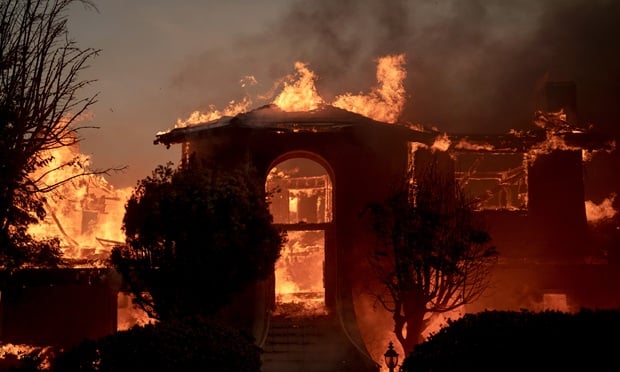Washington
The battle in Congress over extension of the Terrorism Risk Insurance Act and preoccupation with a controversial Supreme Court confirmation will likely delay introduction of the SMART regulatory reform bill and could push any action on it into next year.
That likelihood was made even more evident when the Capital Markets Subcommittee of the House Financial Services Committee announced that it will hold a hearing on TRIA on July 27. A number of industry representatives are expected to say at the hearing that they will support an extension of TRIA that narrows current federal commitments and has a phase-out date.
Specifically, the industry representatives are expected to embrace the principles for legislation extending TRIA spelled out by Rep. Mike Oxley, R-Ohio, chairman of the Financial Services panel, during a hearing on the issue July 15, where Treasury Secretary John Snow was the sole speaker.
Those principles include more private sector involvement than in the current bill, protection for the taxpayer (that is, greater payback requirements for money shelled out by the federal government for a terrorist attack than mandated by the current bill), and a phase-out of such federal involvement over time.
Last week's second attack in the past month on London's transportation system is likely to add greater momentum for prompt action on TRIA, which expires Dec. 31.
One insurance industry lobbyist said the reason for the delay in acting on the State Modernization and Regulatory Transparency Act is that "action on TRIA is paramount, and the energy needed to deal with work on the extension is squeezing the oxygen out of action on SMART."
Further complicating matters, the National Underwriter has learned that two ranking members of the committee–Reps. Ed Royce, R-Calif., and Paul Kanjorski, D-Pa.–have agreed to introduce an amendment to SMART that would establish an optional federal charter for life companies. This will further complicate action on such legislation because property-casualty officials who back the concept believe their best hope for a federal charter is to remain in lock-step with the life industry.
The confirmation process for the nomination of Appeals Court Judge John Roberts to the Supreme Court is also expected to rivet the attention of Congress in September. But staff work in both the House and the Senate on TRIA should continue during that period, and action on such legislation is expected to resume after the confirmation process is completed.
The SMART bill is opposed by state interests, including the National Association of Insurance Commissioners and the National Council Of Insurance Legislators, but is strongly supported by the property-casualty industry. However, a delay in introducing the bill could push action on it into next year as well as reduce its momentum for passage.
Meanwhile, Federal Reserve Board Chairman Alan Greenspan is giving measured support to extension of TRIA, another sign that momentum has swung in Washington toward an extension of the legislation. In comments to the House Financial Services Committee, Mr. Greenspan said some extension of TRIA is needed because the risk of losses from terrorist attacks are too great for private insurance markets to handle and some government backing must be involved.
"I think that what Congress has got to do is to recognize it's a tradeoff–that is, so long as we have terrorism that has the capability of a very substantial scope of damage, there is no way you can expect the private insurance system to handle that," he said.
Mr. Greenspan added that government backing is necessary, but he cautioned that Congress should take care not to go too far.
"We have to be careful in creating whatever we do in government insurance or reinsurance, to make certain we do not go beyond the point which is necessary, because obviously everybody likes free goods…But I don't see how we can avoid the issue of a significant segment of government-backed reinsurance in this particular area," he said.
Responding to Mr. Greenspan's comments, Dennis Kelly, a representative for the American Insurance Association, said that "it is helpful to have someone of Chairman Greenspan's stature and with his knowledge of how financial markets work, continuing to say private markets cannot handle certain risks and that there needs to be a continued government role for insuring against catastrophic terrorist attack."
The energy needed to extend TRIA is "squeezing the oxygen out of action on SMART," says one official.
Want to continue reading?
Become a Free PropertyCasualty360 Digital Reader
Your access to unlimited PropertyCasualty360 content isn’t changing.
Once you are an ALM digital member, you’ll receive:
- Breaking insurance news and analysis, on-site and via our newsletters and custom alerts
- Weekly Insurance Speak podcast featuring exclusive interviews with industry leaders
- Educational webcasts, white papers, and ebooks from industry thought leaders
- Critical converage of the employee benefits and financial advisory markets on our other ALM sites, BenefitsPRO and ThinkAdvisor
Already have an account? Sign In Now
© 2024 ALM Global, LLC, All Rights Reserved. Request academic re-use from www.copyright.com. All other uses, submit a request to [email protected]. For more information visit Asset & Logo Licensing.








